Louisiana advocates ‘gobsmacked’ by decision halting massive grain terminal
The project in Wallace was at the center of a local fight to preserve surrounding area’s historic treasures from further industrial development

Published by Investigate Midwest
Blaming “wealthy plantation owners” and outside “special interest groups,” Louisiana Gov. Jeff Landry decried the abrupt decision late Tuesday to cancel a massive grain elevator proposed for a small predominantly Black community along the Mississippi River fighting to preserve its history and landmarks.
Owners of one of the nearby plantations, Jo and Joy Banner, are Black community advocates who fought the grain elevator. A second plantation near the footprint is the Whitney Plantation, run by a nonprofit organization to highlight the history of slavery in the area.
The grain export facility would have towered nearly 275 feet in the air within 300 feet of homes in St. John the Baptist Parish, sending grain delivered primarily by barge onto ocean-going ships.
Officials with Greenfield Louisiana LLC said the company is halting plans to build the proposed $800 million facility because of delays in getting the necessary permit approvals from the U.S. Corps of Engineers — which the company accused of being swayed by special interests. The Corps had previously found the project would have adversely impacted some historic properties in the surrounding area.
Greenfield announced the decision at a community meeting Tuesday night hosted by the Corps to discuss the environmental justice concerns of local residents.
“Everyone was gobsmacked,” said Jo Banner, who was at the meeting along with about 50 other people. “The Corps said they didn’t know it was coming. I kind of didn’t believe it (was being canceled).”
St. John the Baptist Parish is home to several predominantly Black communities built by former slaves working on sugarcane plantations following the American Civil War.
The Banners have pushed to get an 11-mile stretch of road in the parish designated a historical landmark by the National Park Service. They hope to use the designation as a tool to block future industrial development in the community.
The latest development is a major victory for small grassroots groups pushing back against the state’s dominant oil, gas and petrochemical industries. Groups operating in Louisiana’s “Cancer Alley” increasingly are drawing funding and attention from local and national environmental advocacy organizations.
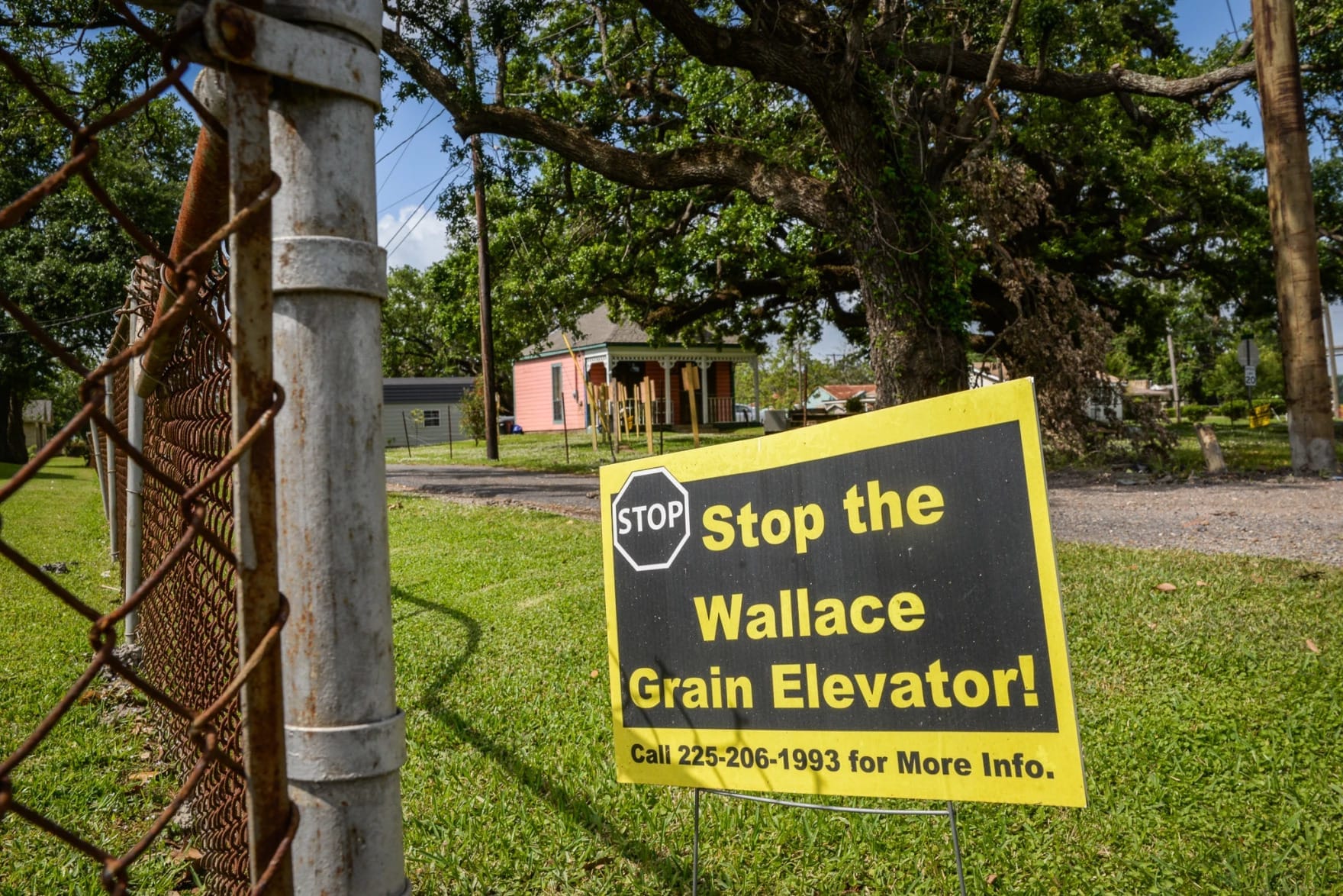
‘Wealthy plantation owners’ blamed
Landry, a pro-business Republican who took office in January, blamed the Corps of Engineers for the delays that killed the project. Landry said the grain elevator would have been an “environmentally sound” development that would have brought “hundreds of high paying jobs” to the parish.
“After years of delay, it’s sad that the Corps of Engineers had additional delays with this project — choosing to adhere to special interest groups and wealthy plantation owners instead of hardworking Louisianans,” Landry said in a statement.
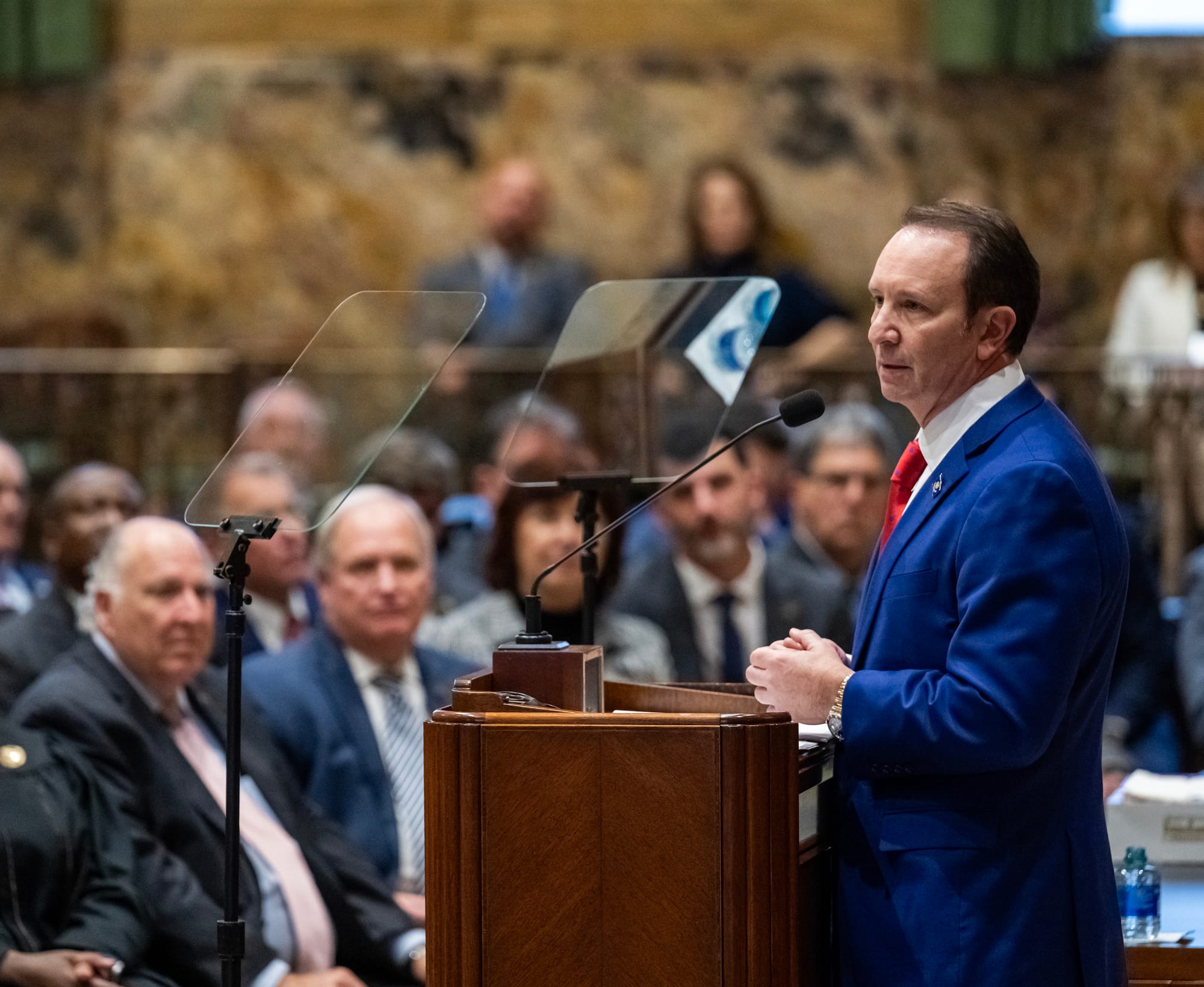
“Louisiana is ready to move past our days of listening to plantation owners, but it seems our federal government is not,” he said.
A Corps spokesman said the agency’s permitting decision in this case was bound by multiple federal laws, including the Clean Water Act, the Rivers and Harbors Act and the National Historic Preservation Act.
“(The) permit evaluation process for Greenfield’s proposed project has proceeded in accordance with all applicable laws and regulations,” Corps spokesman Ricky Boyett said.
Boyett said the “regulations do not set forth a prescribed timeline for the process,” and the time required for each project is “unique and fact-specific.”
He added that the Greenfield Louisiana project, first proposed in 2021, is in a location with many cultural resources and adjacent to a community with environmental justice concerns. Boyett insisted the agency’s efforts to evaluate the proposal and to achieve compliance with relevant laws were timely.
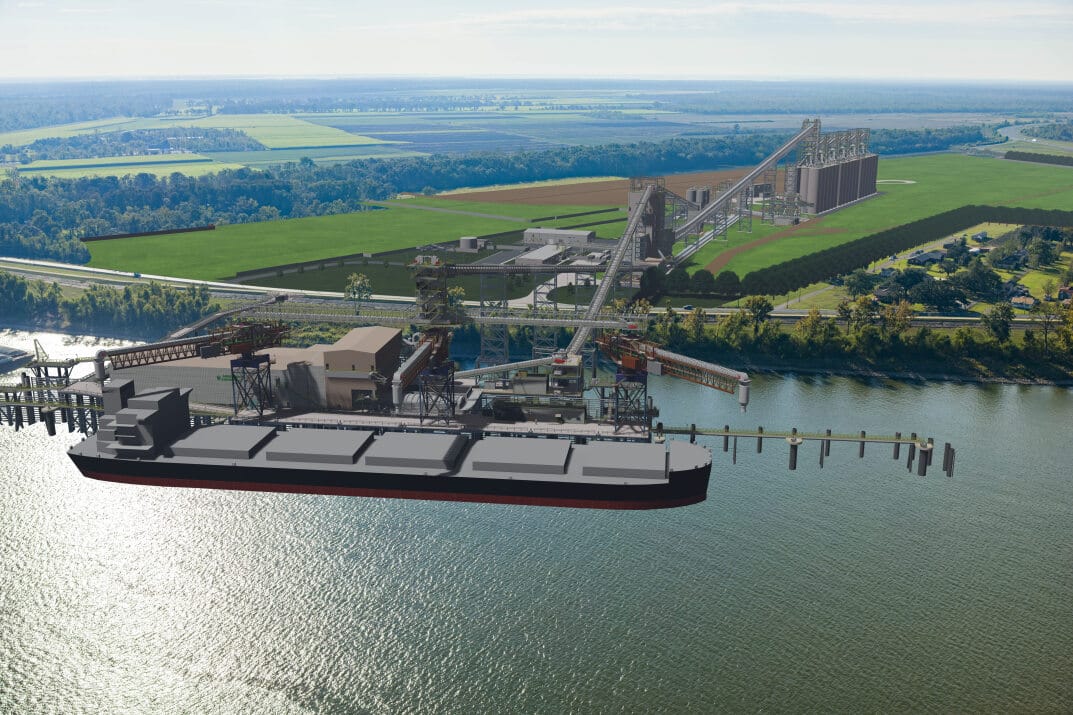
Delay prompts cancellation
The final straw for the company was when the Corps pushed its permitting decision until March 2025, according to Lynda Van Davis, Greenfield’s counsel and head of external affairs.
“Time kills all projects and, sadly, the U.S. Army Corps of Engineers chose to repeatedly delay this project by catering to these special interest groups when it should have been listening to local voices from our community,” Davis said in a statement. “The repeated delays and goal-post moving we have faced have finally become untenable, and as a result, our local communities lost.”
Jo Banner said The Descendants Project is not dropping its legal fight with the parish over its decision to rezone from residential to industrial 1,300 acres between Wallace and the Whitney Plantation, where the project was planned to be built.
“That area is still vulnerable to industry,” she said. “We have to make sure we shut the doors to not allow polluters into our community.”
St. John the Baptist Parish is within the approximately 85-mile stretch of predominantly Black and economically disinvested communities, commonly referred to as “Cancer Alley.” The communities that dot the banks of the Mississippi River between New Orleans and Baton Rouge include an estimated 200 fossil fuel and petrochemical facilities — one of the most industrialized zones in the United States.
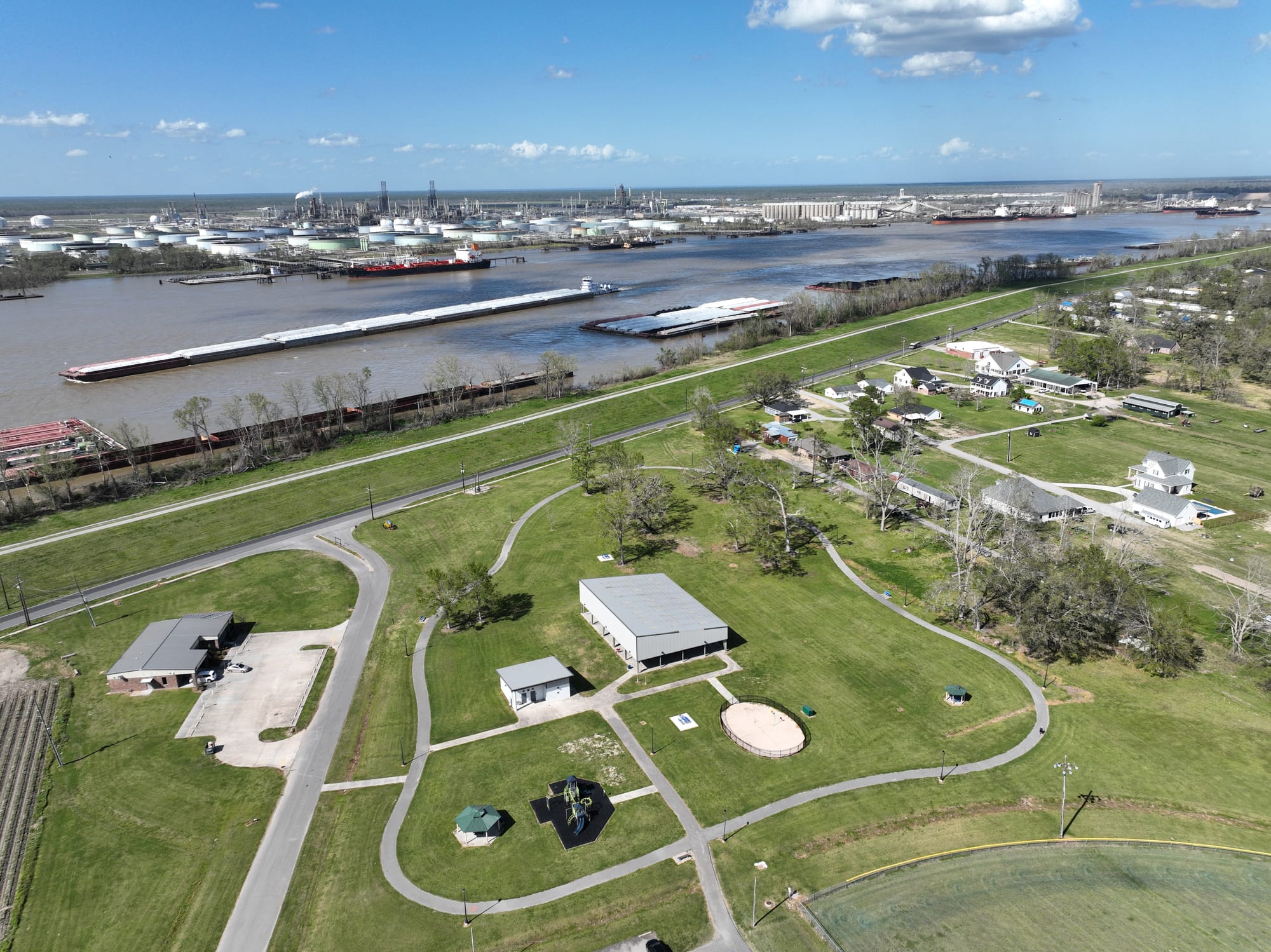
Fight to preserve history continues
The Banner sisters are working to immortalize the perseverance and the struggles of their enslaved ancestors through the historic landmark designation encompassing the rural communities of Wallace, Edgard and Lucy.
European immigrants first settled in the area during Louisiana’s French colonial period because of its rich soil. They used enslaved labor from Africa to build levees, construct homes and tend to their farms and livestock.
With the commercial viability of sugar on the rise after 1795, sugarcane plantations became the main economic driver for the region. Slavery was abolished in the area when Union troops occupied it in 1862, before the end of the American Civil War. With enslaved people newly freed, and many joining the Union effort, the U.S. Army implemented a military-regulated wage system to attract them back to work on sugarcane plantations.
Those former slaves, and Black veterans of the Civil War, defied many obstacles to eventually become landowners and build their own communities in the late 1800s. And in the mid-1900s, the area began seeing its farms and plantations become the sites of petrochemical and other industrial facilities.
But for more than 300 years, the western bank of the Mississippi River in St. John the Baptist retained much of its rural and agricultural charm. The area is home to two of the state's popular tourist attractions, the Whitney Plantation and the Evergreen Plantation, both of which are listed on the National Register of Historic Places.
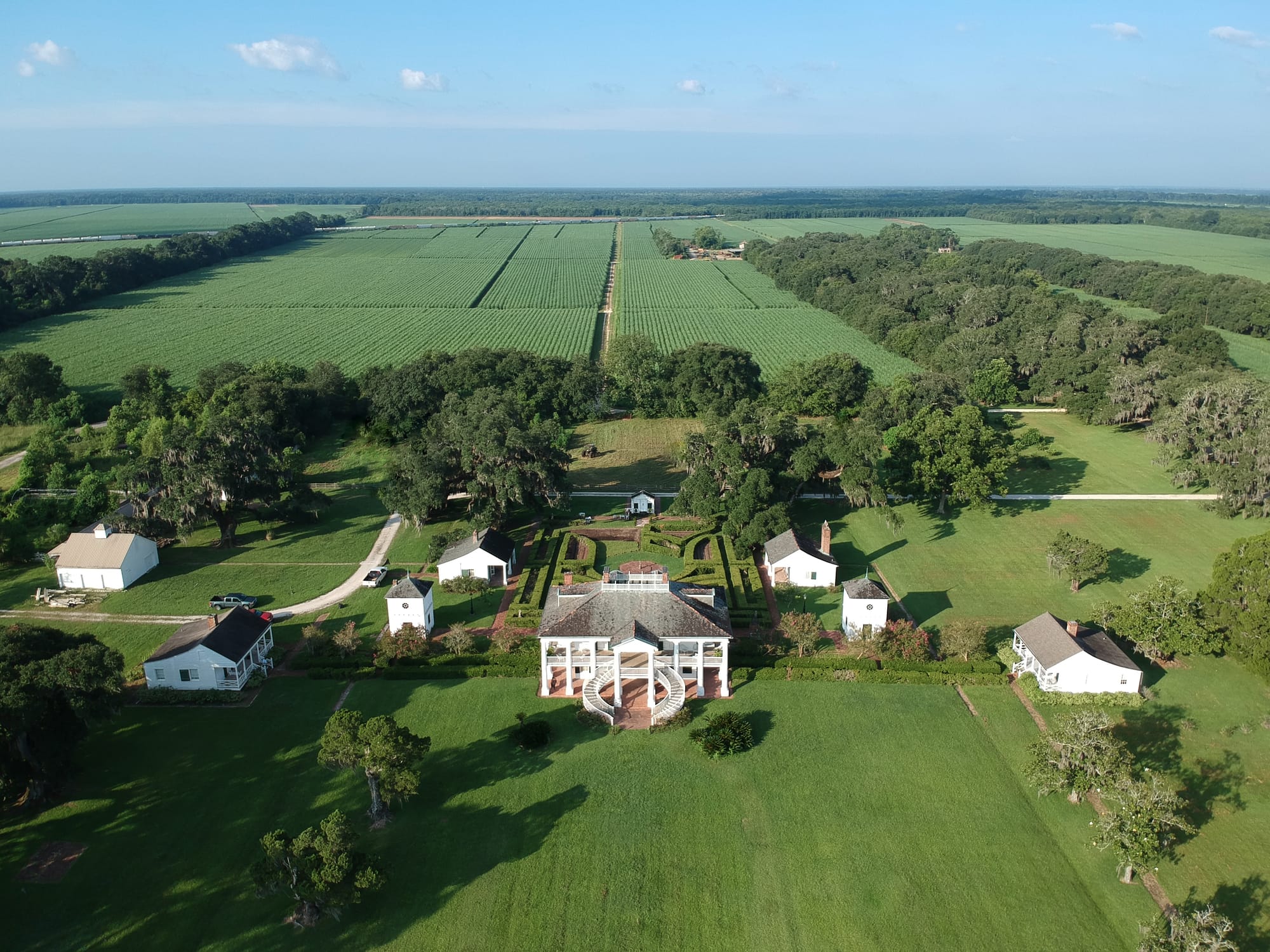
“This is beyond Greenfield, although this project would have just undeniable destruction of our history, but it’s about preserving the area, about preserving the culture,” Jo Banner said. “We’re heard many times with Greenfield, this narrative, this belief or this lie that nothing is here, that everybody is leaving.”
Davis had said the potential historic designation would not have interfered with the construction of the grain export facility. The company had intended to work with experts to minimize adverse impacts on historically designated buildings.
Banner said obtaining the historic designation will send a message to other industrial companies looking to locate in the already heavily industrialized parish that they no longer can dictate what happens there.
Site a ‘good candidate’ for recognition
The communities in Cancer Alley were home to many of the plantations and cemeteries of the enslaved Black labor who lived and worked the sugarcane and cotton fields that are still in use today.
A draft study by the National Park Service measuring the historical context of St. John the Baptist Parish found the Great River Road is a “good candidate” for historical landmark consideration based of five key findings:
- Its unique settlement patterns and architecture during the French settlement period of 1718 to 1803.
- The importance of the parish’s sugar production to the national economy, especially during the Reconstruction Era.
- How the area’s transition of Black enslaved laborers to wage laborers and landholders illustrates an alternative narrative to the Great Migration and sharecropping between the Reconstruction Era and into the 20th century.
- The generations of families who chose to stay and live in the parish, contributing to culture and characteristics.
- Its agricultural landscape and farming methods stretching back nearly 300 years, which researchers said created a “rare and unique” experience of the plantation system in the American South.
The National Park Service recently extended the public comment period until Aug. 30 on the draft study before it’s finalized later this year.
If the area is awarded historic landmark status, it means any development or actions using federal funding or requiring federal approval face a special review designed to mitigate harm to historic properties. In some cases, that could mean making modifications to the project.
“These are rights that communities have,” Jo Banner said. “I hope everyone takes a step back and looks at what they have. And then think about what industry, whatever that may be, and say ‘Wait a second, we have this, and this is part of our history. Are we willing to lose something in order to bring in something else that can be really damaging to everyone, even if it has these benefits?’ ”
Floodlight is a nonprofit newsroom that investigates the powerful interests stalling climate action.


